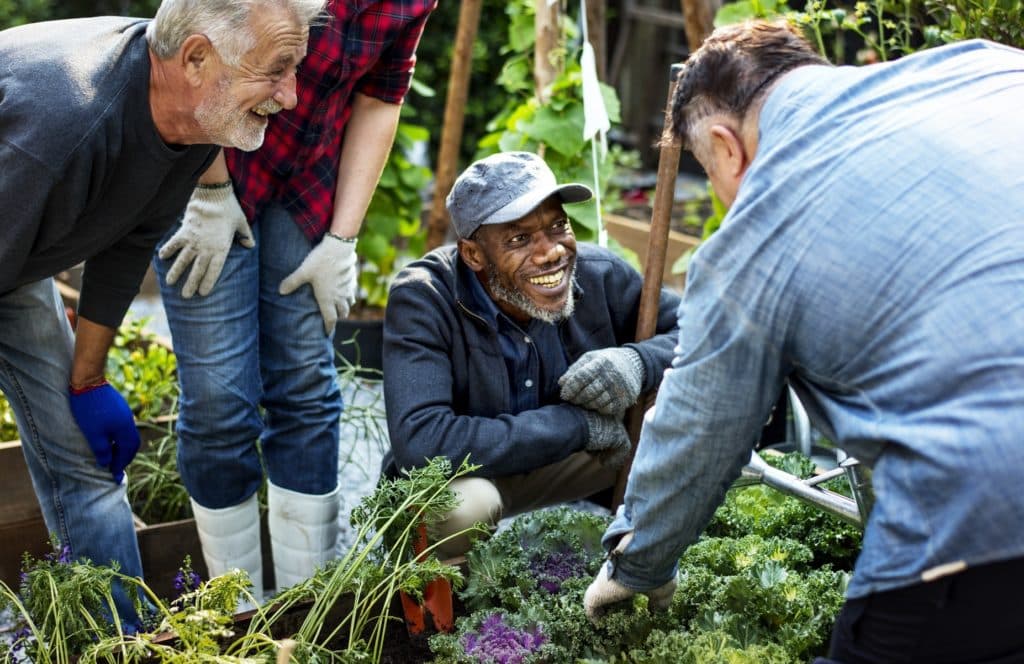
Whether you have a backyard or windowsill garden, or access to a community garden, growing food saves money, avoids wasteful packaging and teaches valuable skills.
Eco-grief and climate anxiety are becoming more recognized as responses to the climate and biodiversity crises. It can be overwhelming to think about what one person can do to help solve these global problems when we know larger, societal transformation is needed. But action is a powerful antidote to grief and many people making small changes each day adds up!
Begin to implement greener habits into your daily life. You’ll feel great living your values. And, by adopting everyday solutions that lower your climate impact, protect, respect and restore nature, and support safer, healthier communities, you’ll join a growing community of people striving to make sustainable living mainstream.
You can make a difference whenever you can, with what you have. Start where you are and choose your path!
Fifteen suggestions to green your daily life
- Walk, cycle, scooter or skateboard. Choosing active transportation for getting around (including your commute) will help you and nature.
- Take public transit (or carpool). Regularly opting to ride the bus, take the train or carpool will save you money, lower your emissions, reduce traffic congestion and air pollution, and help out your community.
- Choose a fuel-efficient car. If you must drive, the best vehicle for reducing your carbon emissions is electric. A lot about EVs is changing. Make sure you have the latest information. Discover the truth about EV ownership and their environmental impacts.
- Fly less. Flights are energy-intensive and depend on fossil fuels. Learn about the connection between air travel and climate change and ways you can make your flying more efficient.
- Check for air leaks in your home and seal them. Air leaks along walls, windows and doors can account for up to 40 per cent of your home’s heat loss. Bonus: in addition to making your home more energy efficient and saving money on your heating bill, you’ll also be cooler in the summer and warmer in the winter.
- Avoid energy “phantoms.” Unplug electronics when you’re not using them. They use power and run up your energy bills even when turned off. Plug multiple devices into power bars you can switch off. Consolidate all devices that need to be charged onto the same power supply.
- Take responsibility for your electronics. E-waste is the fastest-growing domestic waste stream. Learn how to avoid it and how to recycle electronics you already have.
- Eat plant-based only at least one day a week. Skipping meat for one day a week can reduce your annual carbon footprint as much as not driving a car for a whole month. Learn more about how what you eat affects the climate.
- Read food labels. Avoid overly processed foods. Local and organic products are always the best choice. Vote with your fork by supporting local, organic producers.
- Grow your own food. Whether you have a backyard or windowsill garden, or access to a community garden, growing food saves money, avoids wasteful packaging and teaches valuable skills. Check out these gardening tips for beginners.
- Reduce food waste. Avoid sending kitchen and yard waste to landfills by composting, making the most out of your food scraps, starting a food sharing club and making the best choices at the grocery store.
- Use green cleaners. Stores are full of colourfully branded, toxic cleaning products. Learn how to shop for green cleaners and make your own.
- Talk to friends and family. One of the most important things you can do about climate change is talk about it. Start with those closest to you. Learn how to navigate difficult conversations. Invite your household to participate in “green” house rules.
- Sign petitions. Make it a regular habit to sign petitions asking governments to take climate action and protect nature. Start with ours.
- Nudge the system. Move to green energy, divest from banks that support the fossil fuel industry, tell manufacturers you want products with minimal packaging. These small actions can lead to big change.



